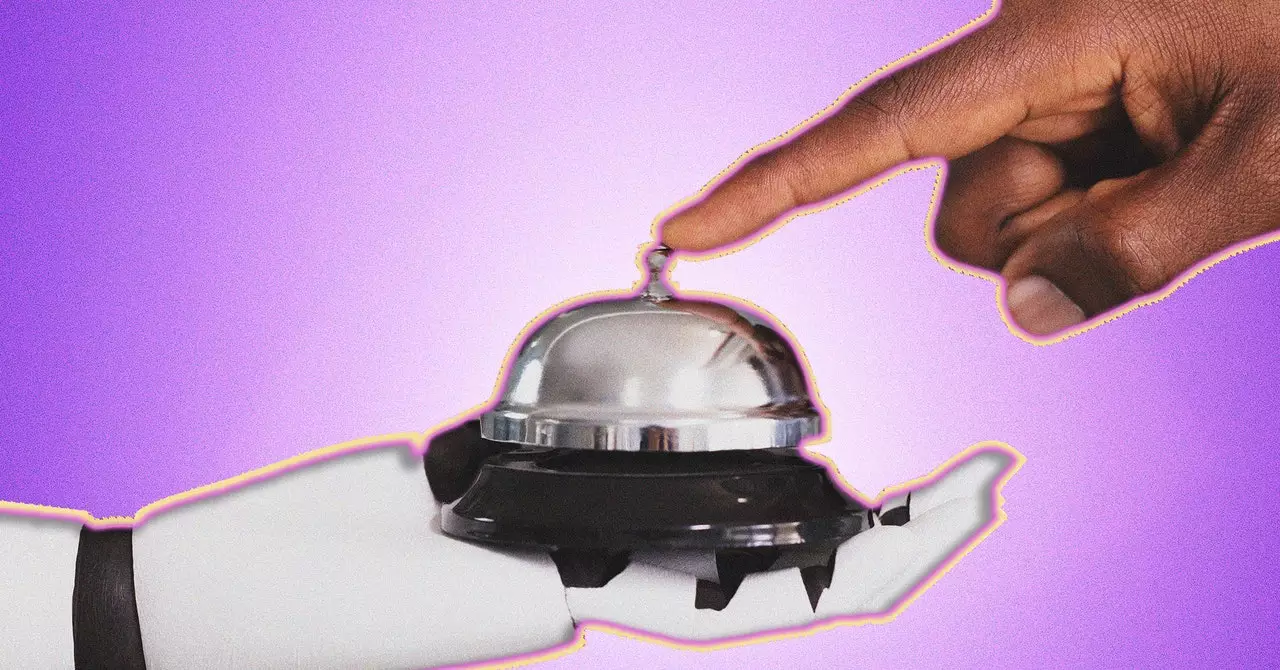In a fast-evolving technological landscape, artificial intelligence is finding its way into sectors that were once deemed solely reliant on human interaction. One such domain experiencing this transformation is the restaurant industry, particularly in handling customer inquiries through AI-driven voice assistants. This article explores the emergence of AI voice hosts, their functionality, and the implications they hold for both restaurants and customers.
The concept of an AI voice host in restaurants may initially seem counterintuitive. After all, dining experiences have long been associated with personal touch and human interaction. However, the growing number of phone calls received by restaurants signals a need for innovative solutions. AI systems like Maitre-D, Newo, and RestoHost are designed to meet this demand by efficiently managing inquiries without overwhelming restaurant staff. This technology allows establishments to maintain a human-like interaction while offloading repetitive tasks to an AI.
Restaurants are inundated with phone calls, particularly those that are popular or require reservations. As highlighted by Alex Sambvani, CEO of Slang, busy dining establishments often deal with up to 1,000 calls each month. This high volume creates a logistical nightmare for hospitality staff, pulling them away from serving guests to answer basic queries. In this context, AI voice hosts emerge as a valuable resource, catering to customers seeking information on dress codes, menu options, or table availability.
These AI systems offer a plethora of features that streamline the dining experience for both patrons and staff. Their primary role is to answer frequently asked questions, such as the restaurant’s policies on reservations and food allergies. Moreover, many of these platforms can facilitate the booking, alteration, or cancellation of reservations—tasks that can often lead to frustration for both parties when handled via traditional channels.
Furthermore, some AI hosts provide multilingual capabilities, an essential feature in diverse cities with considerable tourism. Given the varying backgrounds of patrons, the ability to communicate in multiple languages enhances accessibility and ensures that a broader audience feels welcomed. Nevertheless, a crucial aspect of these AI systems is their capability to transfer calls to human staff when necessary, although this is often a last resort, as noted by RestoHost cofounder Tomas Lopez-Saavedra, wherein only about 10% of calls require a human touch.
While AI voice hosts present a future-forward solution, significant challenges exist. Notably, customers may still prefer a human voice for assistance in an age dominated by digital interactions. Phone calls might feel outdated to some, as many individuals today gravitate towards online systems like Google and specialized reservation platforms such as Resy. This digital shift raises the question: Can AI truly replicate the warmth and relatability that customers often seek from human staff?
Additionally, there’s the concern that reliance on technology could dull the dining experience. Hospitality is as much about the human connection as it is about the culinary offering. AI voice assistants must strike a delicate balance; they should support staff without usurping the relational aspect of dining out. Restaurant owners, like Matt Ho from Bodega SF, have recognized this distinction, arguing that while automation eases the burden on front-of-house staff, it does not replace the essential service elements that define dining experiences.
As this sector grows, it is imperative for startups and restaurant owners alike to carefully consider the implementation of these AI tools. The initial enthusiasm for technology should not overshadow the essence of hospitality, which thrives on human interactions. Smart technology can supplement human effort, but it should never diminish personal engagement.
AI voice assistants are not merely a trend; they represent a substantial shift in the hospitality landscape. Balancing innovation with the quintessential human touch will determine the success and acceptance of AI in restaurants. As the industry evolves, it will be fascinating to witness how restaurants navigate this intersection of technology and tradition, ensuring that patrons leave with not just their appetites satisfied, but a fulfilling experience as well. The future of dining might be tech-savvy, but it must never forget the heart of hospitality.


Leave a Reply